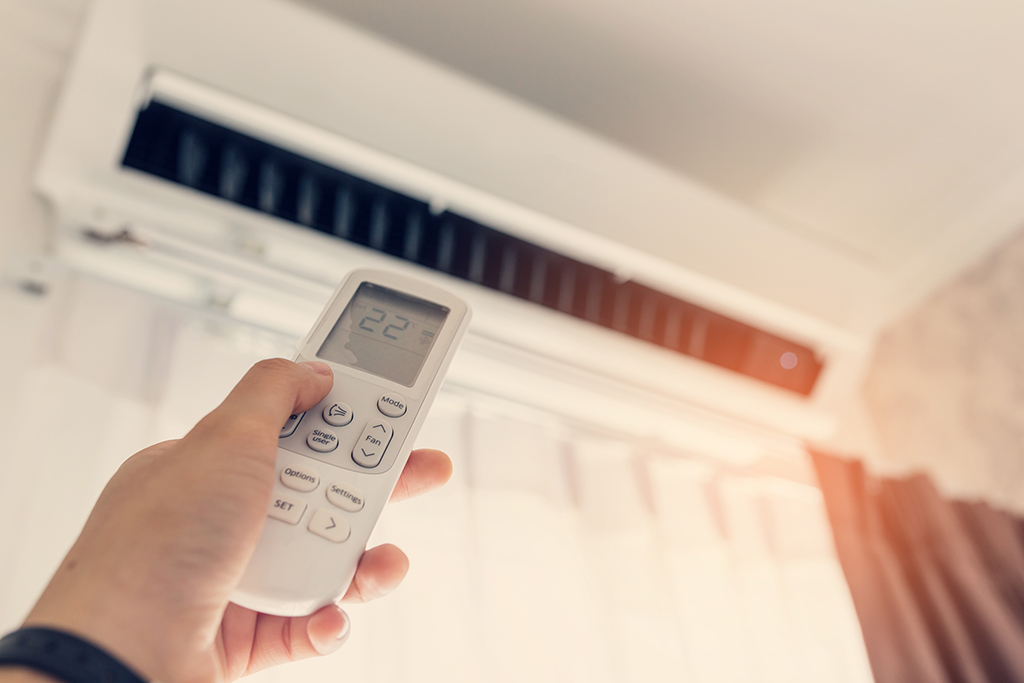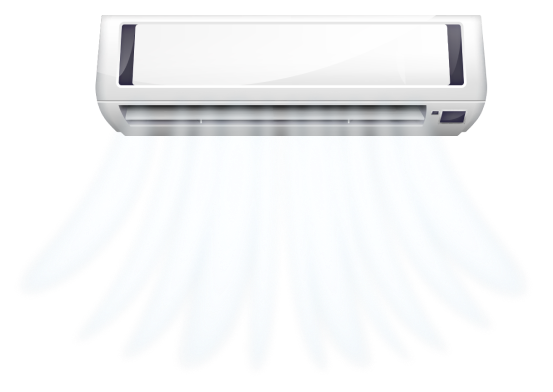
Choosing the right air conditioning system for your home is important. Singapore's tropical climate means that air conditioning is not a luxury but almost a necessity. The right aircon system can make a significant difference in your comfort, energy bills, and overall quality of life.
At Aircon Guru Engineering Pte Ltd, we understand the unique needs of homeowners in Singapore, and we're here to guide you through the process of selecting the perfect aircon system for your space.
When it comes to aircon systems, size truly matters. Selecting an air conditioning unit that matches the size of your space is essential for efficient cooling and cost-effectiveness. A system that's too small will struggle to cool your home, while one that's too large will lead to energy wastage. To determine the right size, we recommend consulting our experts or using an online calculator designed to assess your cooling needs.
Selecting the appropriate type of aircon unit is a critical decision that depends on several factors, including the size of your space, your budget, and your specific requirements.
At Aircon Guru Engineering Pte Ltd, we understand the diverse needs of our customers in Singapore and offer a wide range of aircon unit types. Let's explore each type in detail to help you make an informed choice:
- Central Aircon
Central air conditioning systems are comprehensive solutions designed for larger homes or commercial buildings. They provide consistent cooling to multiple rooms or zones through a network of ducts. The primary components include a central compressor, air handler, and a system of ducts that distribute cooled air throughout your space.
Advantages:- Consistent Cooling: Central aircon systems offer uniform cooling, ensuring that every room in your home maintains a comfortable temperature.
- Quiet Operation: The noisy components are placed outside your home, resulting in quieter indoor operation.
- Enhanced Air Quality: Central systems can incorporate advanced filtration systems, improving indoor air quality.
Considerations:- Installation Complexity: Installing ductwork can be a significant undertaking, which may require modifications to your home's structure.
- Higher Initial Cost: Central aircon systems are generally more expensive to purchase and install compared to other options.
- Portable Aircon
Portable aircon units are versatile and ideal for smaller spaces. They come with wheels for easy mobility and can be moved from room to room as needed. These units typically come with a flexible exhaust hose that needs to be vented out of a window.
Advantages:- Portability: You can move the unit to the room you want to cool, making it a cost-effective option for spot cooling.
- Easy Installation: No complex installation is required. Just plug it in, vent the hose, and you're ready to go.
- Affordability: Portable aircon units are generally more budget-friendly than other types.
Considerations:- Limited Cooling Capacity: Portable units are best for smaller spaces, and they may not provide adequate cooling for larger rooms or open-plan areas.
- Noise Levels: Some portable units can be noisy, so it's important to consider noise levels when choosing one for your home.
- Split Aircon
Split aircon systems are versatile and popular choices for many homeowners. They consist of two main components – the indoor unit (blower and filter) and the outdoor compressor . The indoor unit is usually mounted on an adjacent wall or ceiling, while the outdoor compressor is placed outside the house or building.
Advantages:- Zoned Cooling: Split systems allow you to create different temperature zones within your home, enhancing control and energy efficiency.
- Space-Saving: The indoor unit's compact design minimises visual impact on your interior decor.
- Energy Efficiency: Inverter technology is often used in split systems, providing efficient cooling while saving on energy costs.
Considerations:- Installation Costs: Professional installation is required, and costs may vary based on the complexity of the installation.
- Maintenance: Regular maintenance is necessary to ensure optimal performance and longevity.
- Window Aircon
Window aircon units are compact and are typically installed in a window or an opening in the wall. They're designed for cooling individual rooms and are a popular choice for those seeking a budget-friendly solution.
Advantages:- Affordability: Window units are cost-effective and provide efficient cooling for single rooms.
- Simple Installation: Installation is relatively straightforward, making it an attractive option for DIY enthusiasts.
- Space Efficiency: These units don't take up floor space, which can be a crucial consideration in smaller homes.
Considerations:- Limited Coverage: Window units are designed for single-room cooling and may not be suitable for larger spaces.
- Aesthetic Impact: The presence of a window unit can affect the appearance of your home's facade.
Selecting an energy-efficient aircon system is a decision that can have a profound impact on your home's comfort, budget, and the environment. Let's delve into the key aspects of choosing an energy-efficient option:
- Lower Energy Bills
Energy efficiency is all about getting the most cooling for your buck. In Singapore, where the demand for air conditioning is almost constant, the operational costs can quickly add up. Opting for an energy-efficient aircon system can lead to significantly lower energy bills.
Here's how:- Inverter Technology: Look for aircon systems that incorporate inverter technology. These units can adjust their cooling capacity according to the room's needs, ensuring that they're not working at full power all the time. This results in consistent cooling and, more importantly, less electricity consumption.
- High SEER Rating: The Seasonal Energy Efficiency Ratio (SEER) rating indicates how efficiently an aircon system can cool your home over a season. The higher the SEER rating, the more efficient the system. In Singapore, where hot weather is the norm, a high SEER rating can make a substantial difference in your energy bills.
- Proper Sizing: Ensuring that your aircon system is appropriately sized for your space is essential. An oversized unit may cool your room quickly but will cycle on and off frequently, wasting energy. An undersized unit will work overtime, increasing your electricity usage. An energy-efficient system should be the right size for your space.
- Longer Lifespan
Energy-efficient aircon systems often have a longer lifespan than their less efficient counterparts. This extended longevity is a direct result of their reduced workload and advanced technology.
Here's why a longer lifespan matters:- Reduced Maintenance and Repairs: An energy-efficient system puts less stress on its components, resulting in reduced wear and tear. This means fewer maintenance and repair costs, as well as fewer inconveniences caused by system breakdowns.
- Return on Investment: While energy-efficient aircon systems may have a higher upfront cost, the extended lifespan provides a better return on your investment. You can enjoy consistent cooling for years to come without worrying about frequent replacements.
- Environmentally Friendly
Caring for the environment is a shared responsibility. Opting for an energy-efficient aircon system is not only a smart choice for your home but also a responsible one for the planet.
Here's how an energy-efficient aircon system benefits the environment:- Reduced Carbon Footprint: Energy-efficient units consume less electricity, leading to reduced carbon emissions. By minimising your household's energy consumption, you contribute to the reduction of greenhouse gas emissions, helping to combat climate change.
- Use of Refrigerants: Consider the type of refrigerants used in your aircon system. Eco-friendly refrigerants, such as R-410A, are designed to have a lower impact on the ozone layer. Energy-efficient systems often use these refrigerants, contributing to a greener, more sustainable future.
- Regulatory Compliance: Choosing an energy-efficient system often ensures compliance with environmental regulations and standards, reinforcing your commitment to preserving the environment.
In conclusion, selecting the right aircon system for your home involves careful consideration of factors such as size, climate, type, energy efficiency, placement, and warranty. With the right guidance and expertise, you can enjoy a comfortable and energy-efficient living space in the heart of Singapore.
At Aircon Guru Engineering Pte Ltd, we are committed to providing top-quality aircon systems and expert guidance to our valued customers in Singapore. Choosing the right aircon system for your home is a decision that shouldn't be taken lightly, and we're here to assist you every step of the way.
Contact us today to speak with our experienced team and let us help you create the perfect cooling solution for your home. Don't compromise on your comfort – choose Aircon Guru Engineering as your aircon contractor in Singapore and achieve a more refreshing and energy-efficient living space!




